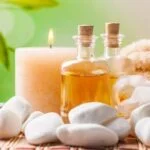High blood pressure, also known as hypertension, is a common health issue that affects millions of people around the world. It can lead to serious complications such as heart disease, stroke, and kidney problems if left unmanaged. Aromatherapy for high blood pressure has gained attention as a complementary and alternative therapy to help manage this condition.
Aromatherapy utilizes essential oils extracted from plants to promote holistic wellness and improve physical and emotional well-being. The use of aromatherapy for high blood pressure has shown promise in helping individuals achieve a sense of relaxation and stress reduction, which are important factors in managing hypertension.
In this article, we will explore the science behind using aromatherapy for high blood pressure, the best essential oils for this condition, how to use aromatherapy effectively, safety precautions for high blood pressure patients, and additional lifestyle changes that can complement aromatherapy in managing hypertension.
Whether you are looking for natural ways to support your current treatment plan or simply interested in incorporating holistic practices into your life, understanding the potential benefits and techniques of aromatherapy for high blood pressure can be valuable information.
Understanding Aromatherapy
Aromatherapy is a holistic practice that uses natural plant extracts, known as essential oils, to promote health and well-being. These essential oils are believed to have various therapeutic properties that can positively impact physical, emotional, and mental health. When it comes to high blood pressure, aromatherapy has gained attention for its potential to help manage this condition.
Studies have shown that certain essential oils have calming and relaxing effects on the body, which can help reduce stress and anxiety – both of which are contributors to high blood pressure. Some of these essential oils include lavender, bergamot, ylang-ylang, and frankincense. These oils can be used in different ways such as inhalation, topical application, or through a diffuser.
Inhalation is one of the most common methods of using essential oils for aromatherapy. The scent molecules from the essential oils travel through the olfactory system and stimulate the brain to trigger a response. This response can promote relaxation and stress relief, ultimately helping to lower blood pressure.
Aromatherapy for high blood pressure is often used in conjunction with other lifestyle changes such as diet and exercise for more comprehensive management of the condition. It is important to note that while aromatherapy can be beneficial for some individuals with high blood pressure, it should not replace standard medical treatment but rather complement it.
| Essential Oil | Potential Benefits |
|---|---|
| Lavender | Calming and relaxation |
| Bergamot | Anxiety reduction |
| Ylang-Ylang | Stress reduction |
| Frankincense | Emotional balance |
The Science Behind Aromatherapy and High Blood Pressure
High blood pressure, also known as hypertension, is a condition that affects millions of people worldwide. It occurs when the force of blood against the artery walls is consistently too high. This can lead to serious health complications such as heart disease, stroke, and kidney damage. While there are various conventional treatments available for high blood pressure, some individuals opt for alternative and complementary therapies such as aromatherapy to help manage their condition.
Aromatherapy is a holistic healing treatment that uses essential oils extracted from plants to promote physical and psychological well-being. The use of aromatherapy for high blood pressure involves inhaling the aroma of these essential oils or applying them topically through massage or baths. The practice is based on the belief that certain scents can trigger reactions in the brain that have a direct impact on the body’s autonomic nervous system, which controls breathing, heart rate, and digestion.
When it comes to the science behind aromatherapy and its potential benefits for high blood pressure, studies have shown promising results. Research suggests that certain essential oils may have a calming effect on the body, which can help reduce stress and anxiety – both of which are contributing factors to elevated blood pressure levels.
For example, lavender essential oil has been found to have soothing properties that can help lower heart rate and blood pressure. Similarly, rosemary essential oil has been shown to improve circulation and reduce cortisol levels, which in turn can help alleviate hypertension.
Best Essential Oils for High Blood Pressure
High blood pressure, also known as hypertension, is a common condition that can have serious health implications if left unmanaged. While there are various medications and lifestyle changes that can help lower high blood pressure, some individuals may also find relief through the use of aromatherapy for high blood pressure.
Aromatherapy involves using essential oils extracted from plants to promote physical and psychological well-being. These oils are often used in massage, inhalation, or added to bath water to create a sense of relaxation and calm. When it comes to managing high blood pressure, certain essential oils have been found to be particularly beneficial.
One of the best essential oils for high blood pressure is lavender oil. Lavender has been shown to have relaxing properties that can help reduce stress and anxiety, which are often linked to elevated blood pressure levels.
Another effective essential oil is rosemary oil, which has been found to improve circulation and may help lower blood pressure as a result. Additionally, ylang-ylang oil is known for its ability to promote feelings of calm and reduce stress, making it a good choice for those with high blood pressure.
How to Use Aromatherapy for High Blood Pressure
Aromatherapy is a natural and non-invasive way to manage high blood pressure. There are several ways to use essential oils to help lower blood pressure and improve overall well-being.
Inhalation
Inhaling essential oils is one of the most common ways to use aromatherapy for high blood pressure. You can add a few drops of your chosen essential oil to a diffuser or inhale directly from the bottle. Inhaling the aroma of essential oils can help reduce stress, anxiety, and promote relaxation, which can in turn help lower blood pressure.
Topical Application
Another popular method for using aromatherapy for high blood pressure is through topical application. Dilute a few drops of essential oil with a carrier oil like coconut or jojoba oil, then massage into the skin. The skin absorbs the therapeutic properties of the essential oils, providing calming effects and promoting relaxation.
Baths
Adding a few drops of essential oil to a warm bath can create a soothing and relaxing environment that may help reduce stress and anxiety, both of which are linked to high blood pressure. Choose calming scents like lavender, rose, or chamomile for an added sense of tranquility.
When using aromatherapy for high blood pressure, it’s important to be consistent with your chosen method and give it time to take effect. It’s also crucial to consult with a healthcare professional before beginning any new treatment regimen, especially if you have existing health conditions or are taking medications for high blood pressure. Aromatherapy should complement existing medical treatments rather than replace them entirely.
Aromatherapy Techniques for Stress Reduction
Aromatherapy has been used for centuries as a natural way to reduce stress and promote relaxation. When it comes to managing high blood pressure, stress reduction is crucial in maintaining overall heart health. Aromatherapy can help lower stress levels and in turn, contribute to better management of high blood pressure.
One of the most common ways to use aromatherapy for stress reduction is through inhalation. Whether it’s through a diffuser, steam inhalation, or simply adding a few drops of essential oil to a tissue or cotton ball, the aroma can have a calming effect on the mind and body. Essential oils like lavender, chamomile, and ylang-ylang are known for their relaxing properties and are often used in aromatherapy for stress reduction.
In addition to inhalation, aromatherapy can also be used topically through massage or in baths. When essential oils are applied to the skin during a massage or added to bathwater, they can help ease tension and promote relaxation.
This combination of physical touch and soothing scents can be especially beneficial for those with high blood pressure who may experience muscle tension or anxiety. It’s important to note that when using aromatherapy topically, essential oils should always be diluted with a carrier oil to avoid skin irritation.
Aromatherapy Safety Precautions for High Blood Pressure Patients
Avoid Stimulating Essential Oils
When using aromatherapy for high blood pressure, it is important to avoid stimulating essential oils that can exacerbate the condition. Oils such as rosemary, sage, and eucalyptus are known to elevate blood pressure and should be avoided by individuals with hypertension. Instead, opt for calming essential oils such as lavender, chamomile, and ylang-ylang to promote relaxation and lower blood pressure.
Dilute Essential Oils Properly
High blood pressure patients should always dilute their essential oils properly before use. Direct application of undiluted essential oils can cause skin irritation or allergic reactions, which can further elevate blood pressure levels. It is recommended to mix essential oils with a carrier oil such as coconut oil or almond oil at a 2-3% concentration to ensure safe application.
Consult With a Healthcare Professional
Before incorporating aromatherapy into their routine, individuals with high blood pressure should consult with a healthcare professional to ensure that it is safe for their specific condition. A medical professional can provide personalized recommendations and advice on the best essential oils and aromatherapy techniques for managing high blood pressure without causing any adverse effects.
Incorporating these safety precautions into an aromatherapy regimen for high blood pressure can help individuals effectively manage their condition while minimizing potential risks. By being mindful of the essential oils used, proper dilution methods, and seeking guidance from healthcare professionals, patients can safely utilize aromatherapy as a complementary approach to managing their high blood pressure.
Additional Lifestyle Changes to Complement Aromatherapy for High Blood Pressure
When it comes to managing high blood pressure, incorporating lifestyle changes alongside aromatherapy can have a significant impact on overall well-being. Here are some additional lifestyle adjustments that can help complement the effects of aromatherapy for high blood pressure:
- Regular Exercise: Engaging in regular physical activity such as walking, swimming, or yoga can help lower blood pressure and reduce stress. Aim for at least 30 minutes of moderate exercise most days of the week.
- Healthy Diet: Adopting a diet rich in fruits, vegetables, whole grains, and lean proteins while lowering sodium intake can contribute to better blood pressure control. Consider the DASH (Dietary Approaches to Stop Hypertension) diet as a guide.
- Stress Management: In addition to aromatherapy, practicing stress-reducing techniques such as meditation, deep breathing exercises, and mindfulness can further support blood pressure management.
Incorporating these lifestyle changes alongside aromatherapy for high blood pressure can produce synergistic effects that promote better overall heart health and well-being. It’s important to consult with a healthcare professional before making significant lifestyle changes, especially if you have been diagnosed with hypertension.
Remember that individual responses to lifestyle adjustments may vary, so it’s essential to monitor your blood pressure regularly and make adjustments as needed in collaboration with your healthcare provider. Taking a holistic approach that includes aromatherapy and lifestyle modifications can lead to more comprehensive management of high blood pressure.
Conclusion and Final Thoughts on Aromatherapy for High Blood Pressure
In conclusion, aromatherapy has shown promising potential as a complementary therapy for managing high blood pressure. The use of essential oils in aromatherapy can have a positive impact on stress reduction, which in turn may help lower blood pressure levels. While more research is needed to fully understand the mechanisms behind this relationship, many individuals have reported benefits from incorporating aromatherapy into their hypertension management plan.
When using aromatherapy for high blood pressure, it is important to choose the right essential oils and utilize proper techniques. Some of the best essential oils for high blood pressure include lavender, bergamot, and ylang-ylang. These oils can be used in various ways such as inhalation, topical application, or diffusion. It is also crucial to practice safety precautions when using aromatherapy, especially for individuals with underlying health conditions like high blood pressure.
In addition to aromatherapy, it is essential to complement treatment with other lifestyle changes such as regular exercise, a healthy diet low in sodium and saturated fats, and stress management techniques like yoga and meditation. Ultimately, while aromatherapy may not be a standalone treatment for high blood pressure, it can certainly play a valuable role in an integrated approach to promoting cardiovascular health and overall well-being.
Frequently Asked Questions
What Essential Oils Are Best for High Blood Pressure?
Essential oils that are often recommended for high blood pressure include lavender, ylang-ylang, and bergamot. These oils are known for their calming and stress-relieving properties, which can help to reduce blood pressure levels.
Which Oil Is Best for High Blood Pressure?
While there is no one “best” oil for high blood pressure, many people find that lavender essential oil is particularly effective in reducing stress and promoting relaxation, which can in turn help to lower blood pressure. However, it’s important to note that individual responses to essential oils can vary.
Does Lavender Lower Blood Pressure?
Some studies have suggested that inhaling the scent of lavender essential oil may help to lower blood pressure and reduce anxiety. The calming effects of lavender are thought to be the reason behind this, as relaxation and stress reduction can contribute to improved cardiovascular health and lower blood pressure levels.

Are you looking for a natural way to improve your health and wellbeing?
If so, aromatherapy may be the answer for you.





